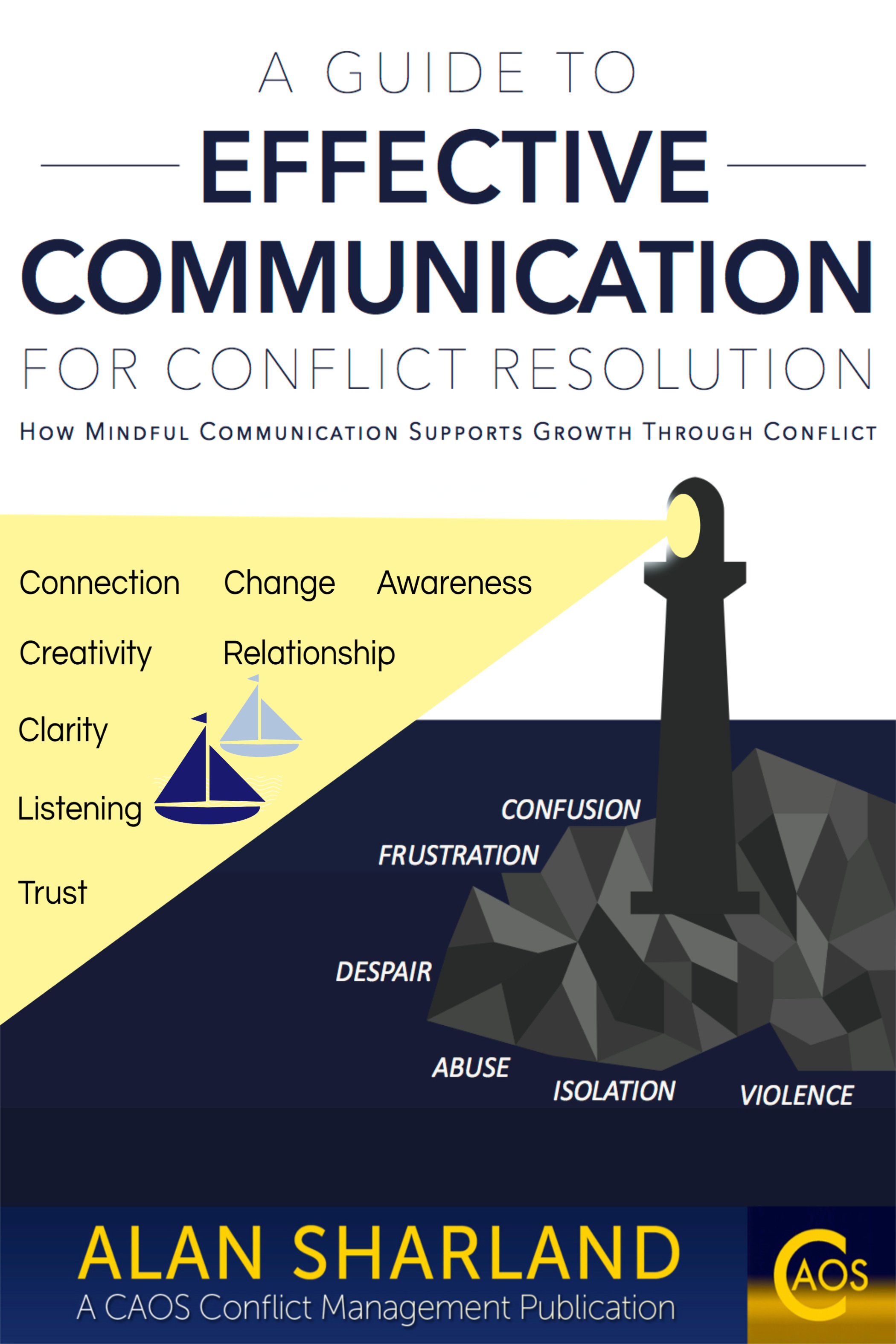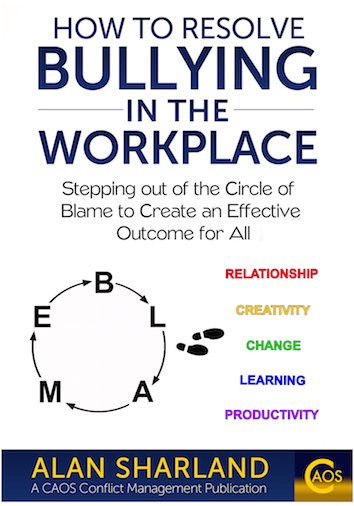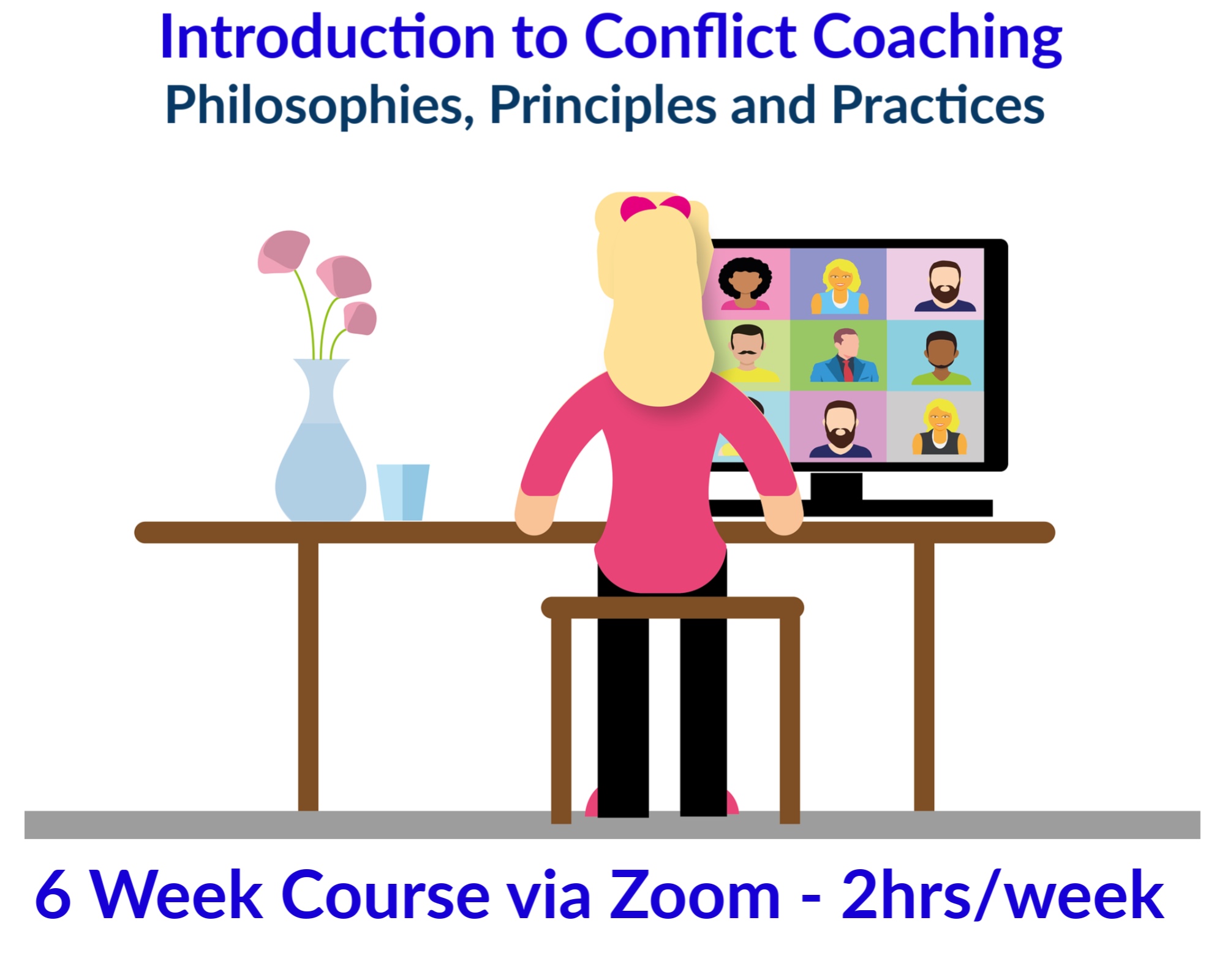Contact CAOS Conflict Management on 020 3371 7507
Student Group Work Conflict - Training in the Skills that Support Peer-to-Peer (P2P) Resolution
Student group work conflict can easily arise when students are given shared assignments requiring co-operation, co-ordination and effective communication in order to fulfil a particular project aim, as well as for each student involved to achieve academically as a result of their involvement. Conflict will inevitably arise in any such group work and the challenge for the group will be to resolve it creatively and effectively.
Conflicts will not only arise from the project requirements but also from the personal circumstances, values, viewpoints and expectations of the students - both of themselves and of others. Typical examples of difficulties that occur include:
- Lateness and failures to get to work meetings/rehearsals. Different ideas about what is acceptable in relation to punctuality.
- Students with paid-work commitments which compromise their capacity to contribute to the group or involve themselves in group work meetings/rehearsals etc Many students have to earn money while studying in order to live day-to-day and this can affect availability for coming together for shared projects.
- Disagreements about the direction of the work – the inability or unwillingness to compromise sometimes causing a break-up into splinter groups or even students working alone who then fail to meet the learning outcomes for a module that is framed specifically as a group project.
- Presentations - researching, putting them together, delivering them - conflict around work allocation/roles, perceptions that some are not contributing as much as others, taking responsibility etc. blocking of ideas, poor communication, attempts to dominate the group.
- Team-working to solve a problem - If students have little or no experience in teamwork it can feel disorientating/daunting and can be a case of 'who shouts loudest' gets heard.
- Difficulties in keeping the focus on the project and not on personalities, framing criticism in ways that are personal rather than constructive, hearing constructive criticism as personal.
These and other difficulties can prevent students from achieving academically as well as lead to wellbeing issues arising from personal stress and stress from academic expectation. Students can feel more 'in control' when working individually but seeing achievement as dependent on the contributions of others can be particularly stressful and when it does not go well, a feeling of powerlessness and frustration.
University tutors can also feel powerless to help students if they do not have confidence in their own skills that support groups to resolve their conflicts. It is also important of course that staff do not contribute to the academic performance of students in such situations and being able to help without doing so can be a challenge.
This is where our 2-day Peer-to-Peer Resolution Support Skills training can help staff to have the confidence to support students both individually and as a group in resolving these kinds of conflicts without 'taking over' their project and without contributing academically to the project.
Supporting Peer-to-Peer Resolution of Student Group Work Conflict
What is Peer-to-Peer (P2P) Resolution?
P2P occurs when the ideas for how to resolve a dispute are created by those directly involved, and the actions required to move towards resolution are carried out by those directly involved.
Peer-to-Peer resolution can be challenging for anyone whether a student or not, but ultimately it is the students' responsibility as co-workers on a group work project to optimise their respective contributions and their team co-operation in the face of the inevitable conflicts that can arise from student group work.
However, Peer-to-Peer resolution of student group work conflict can be supported when university staff are equipped with the same communication skills used in mediation and conflict coaching to support others in resolving disputes by themselves.
Both mediation and conflict coaching are processes that do not 'fix' issues for people, but they do provide support that helps them to create their own answers to difficult situations and helps them communicate effectively about their difficulties.
The CAOS Encouraging, Supporting and Appropriately Expecting Peer-to-Peer Resolution Training Course has been designed as a consequence of demand for such skills within the university sector and in consultation with universities and staff who set group work projects and who see the consequences of unresolved student group work conflict.
The 2-day training also provides an opportunity to review procedures and policies that may mitigate against the use of P2P in student group work conflict where it is not necessary to do so and can instead support its use.
While this training will not prepare attendees to provide the full mediation process it does introduce and give practice experience to attendees in the communication skills and principles of practice which are used by Mediators to support Peer-to-Peer resolution (P2P) in a wide range of contexts.
"Very clear underlying philosophies and principles of practice which helped to be able to continually refer back to. Also the mixture of practice, doing this in groups as well as individually. I did find it all really helpful. I liked the pace and the way the content was presented." - Emma Jones - Exeter University
"Role-play exercises and group discussions made sessions interactive and practical so you could see how P2P can be implemented." - Darren Douglas - Student Union Support - University of West London
"Would very much recommend the course to other people. Having a chance to put 'principles' into practice worked well - making (many) mistakes along the way and learning from them." - Sally Morris - Student Welfare Team - University of West London
"The interactive approach to these sessions was very useful for putting the skills into practice - made it easier to understand. I found it extremely informative and engaging." - Stella Webb - Students' Union President - University of West London
How do I arrange training for staff in Supporting Peer to Peer Resolution of Student Group Work Conflict?
If you'd like this training for your staff in the skills that can support resolution of student group work conflict without 'taking over' the issues involved or becoming too involved in their project as a consequence, please call:
020 3371 7507
Alternatively you can contact us by email.
The cost for this 2-day course is £2300 which includes the fee for the training plus any travel and accommodation costs. Venue and any other costs to be covered by commissioning organisation.
The Training Course Content is as follows:
How to Encourage, Support and Expect, where appropriate, Peer-to-Peer Resolution of Student Group Work Conflict
This 2-day workshop for university staff covers the following:
Day 1
- Introduction to and direct practice of the communication skills that encourage and support P2P.
- Understanding how these practices avoid providing an inappropriate 'fix' of the conflict but help the students to resolve it by and for themselves.
- Developing the self-awareness and 'mindfulness' in relation to the practices to ensure any interventions support P2P towards effective resolution of disputes by the students themselves!
Day 2
- Further application of the skills learned on Day 1 and a review of curriculum, departmental and other related practices and procedures that may inhibit P2P.
- How to establish an expectation of P2P amongst students where appropriate, and to understand it as an additional opportunity for learning arising from the student experience.
As with all CAOS Conflict Management training the course is highly interactive and experiential giving a lot of opportunities for learning and practising the skills involved in supporting P2P as well as plenty of opportunity for constructive reflection, review and discussion of what is involved.
For this reason the maximum number of attendees is 8 for any course commissioned.
On completion of the 2-day course attendees will receive the CAOS Conflict Management Peer-to-Peer Resolution Support Skills Certificate.
(Note: We also provide this training for staff who wish to support resolution of student accommodation conflict through facilitating peer-to-peer resolution.)
My thanks to Meretta Elliott MA, SFHEA, Head of Arts and Humanities and Dr Mary E Richards MA, PhD, SFHEA, FRSA Associate Dean (Equality and Diversity), both from the College of Business, Arts and Social Sciences at Brunel University for their assistance in developing this student group work conflict resolution training and webpage content.
Images from pixabay.com
Books by Alan Sharland
Join our Online course:
An Introduction to the Philosophies, Principles and Practice of the CAOS Model of Conflict Coaching - Click this link to find out more

CAOS Conflict Management
Working With Universities To Develop Their Use of Mediation and Conflict Coaching
Click here to download a leaflet about the benefits of introducing Mediation into a university community for use in the resolution of Student Complaints about their course and how CAOS Conflict Management can help with that.
‘Mediation awareness’ is growing, but there is still a surprising amount of ignorance about mediation in HEIs. It is often being introduced with other forms of ‘alternative dispute resolution’ where it has a local ‘champion’, someone who has realized its potential advantages. This can mean that, for example, only HR or Personnel or only Student Services have introduced such provision and the HEI as a whole has not yet become aware of its possibilities. G.R.Evans Project Leader August 2009
From WORKING WITH HEIs TO DEVELOP MEDIATION TRAINING a project report created by Improving Dispute Resolution - Transforming Policy and Practice in Dispute Resolution in HEIs
National Union of Students Review of Institutional Complaints and Appeals Procedures in England and Wales 2009
RECOMMENDATION 6: Institutions investigate the use of mediation as part of their procedures.
"It is likely that greater use of mediation in student complaints would result in better outcomes for both parties. It may not work in every case where relations between individuals have broken down irrevocably but would be a good starting point in most cases. Although, it can also mend broken relations in some cases." - page 18 of the Review.
If you are from a University or other HEI and would like assistance in integrating mediation into your complaints procedure or more widely within your Institution, please contact CAOS Conflict Management to discuss your interest on:
020 3371 7507
CAOS also provides Conflict Management Training for University staff including 'Managing Conflict in Teams' for Managers, Heads of Department, Administration Team Managers, Team Members etc.
Click here for more information about this training.




